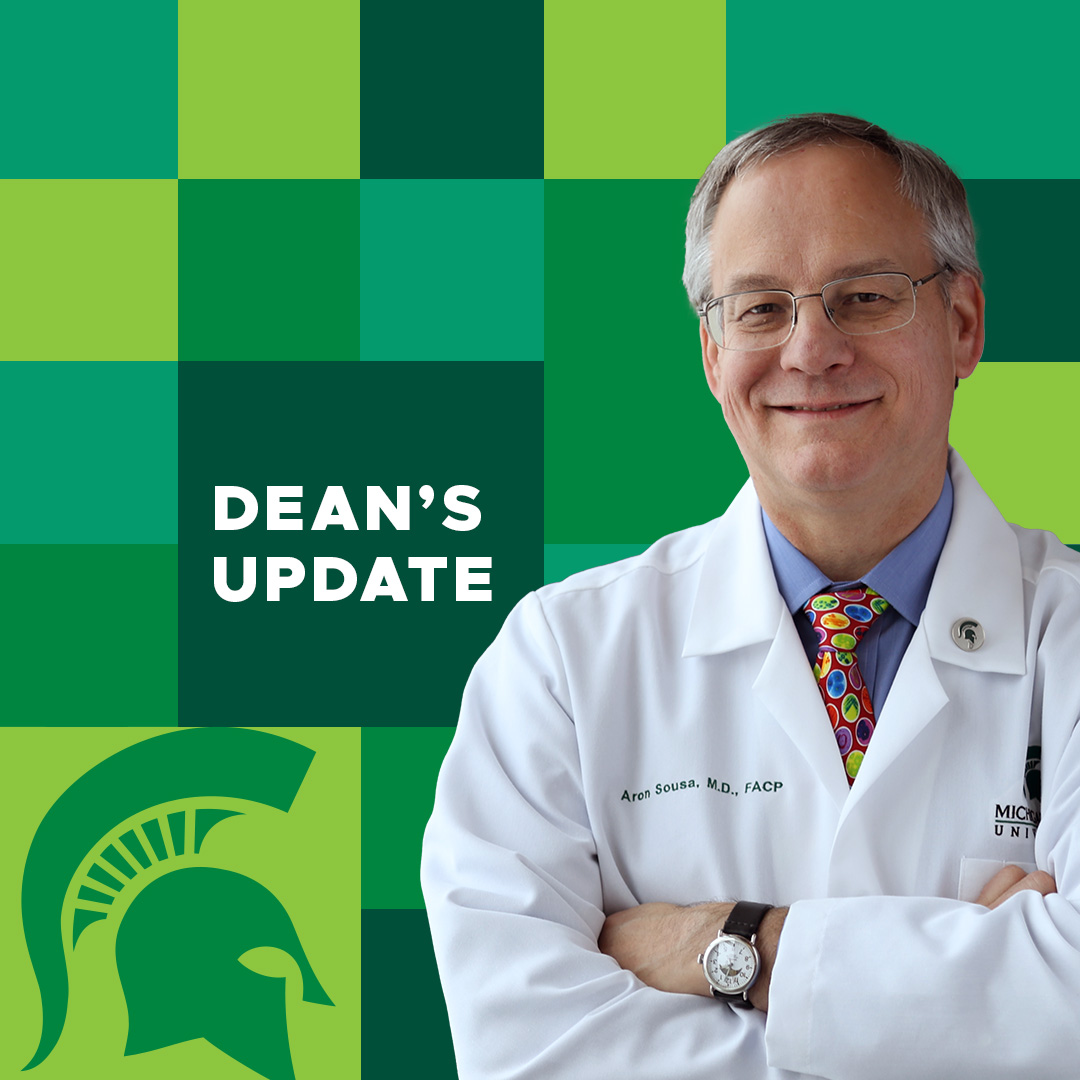Dean's Update
February 21, 2025 - Aron Sousa, MD
Friends,

For the last month, Michigan’s weather has provided for some excellent sledding. Contrariwise, the last month of metaphorical sledding has been decidedly slushy with grassy patches right down the middle of the run. The threats to NIH reimbursements are in the courts, and the larger issues will move to Congress in coming months — this is very much a national issue across our nation’s multihued landscape. We await word on whether some of our grants will run afoul of the verboten word list, and we are working with chairs to sort out how we keep teams together for future grant submissions. Dr. Parameswaran has done a great job communicating what we know and searching for answers to the questions that elude our mastery. Catch him weekly on the Town Hall.
Just to be clear, this week’s “Dear Colleague” letter from the Department of Education does not change anything for the university or the college – we have successfully run our programs for years without any race conscious procedures, as required by Proposal 2 of 2006.
One of the greatest threats to the work of the college is the congressional effort to cut Medicaid funding. The college and our partners use a special Medicaid financing called intergovernmental transfer (IGT) to fund the MSU-Lansing psychiatry residency and the Pine Rest-MSU psychiatry residency in Grand Rapids.
- Each year, the MSU-East Lansing residency has 7 psychiatry residents and 2-4 child psychiatry fellows. Over about 30 years we have graduated 238 residents, of whom 154 (65%) are still in Michigan and see more than 500,000 patients in Michigan per year.
- The Pine Rest-MSU residency is a relatively new program with about 14 psychiatry residents and another 4-5 fellows per year. They have graduated 73 psychiatrists and 28 fellows in child, forensic, addiction, and geriatric psychiatry. Fifty of these graduates (50%) are working in Michigan seeing an estimated 168,000 patients in Michigan per year.
That is a lot of mental health care. Across both programs, our graduates predominantly locate in the middle/western and northern parts of the state. Most psychiatry residencies in the state are in southeast or southern Michigan. The only other psychiatry residency at or above the I96 corridor is in Saginaw, and our grads are predominantly practicing in mental health shortage areas. Both residencies have a partnership with MIDOCs, a medical school/state/Medicaid-funded program to support residencies in underserved areas. MSU-East Lansing provides the only psychiatry training program in the UP and Pine Rest-MSU has the only residency in the northern Lower Peninsula (Traverse City).
The MSU Medicaid-supported psychiatry residencies are the main source of psychiatrists to rural underserved communities of Michigan. One recent graduate is one of only two psychiatrists on site in Sault St. Marie. Two other psychiatrists from these programs will be in the Thumb, which is a mental health shortage area.
The most important work of Medicaid is supporting care for those who cannot otherwise get insurance coverage. Thirty-eight percent of Michigan births are covered by Medicaid. One in six Medicare beneficiaries in Michigan is also covered by Medicaid as are three in five nursing home residents in the state. Nationally, 7.2 million seniors are on both Medicare and Medicaid. Beyond this, the medical schools of the state help expand Medicaid patient access to physicians through IGT programs that provide hundreds of millions in local payments – money coming to Michigan to support patient care for those in need.
Serving the people with you,
Aron
Aron Sousa, MD, FACP
Dean, Michigan State University College of Human Medicine

